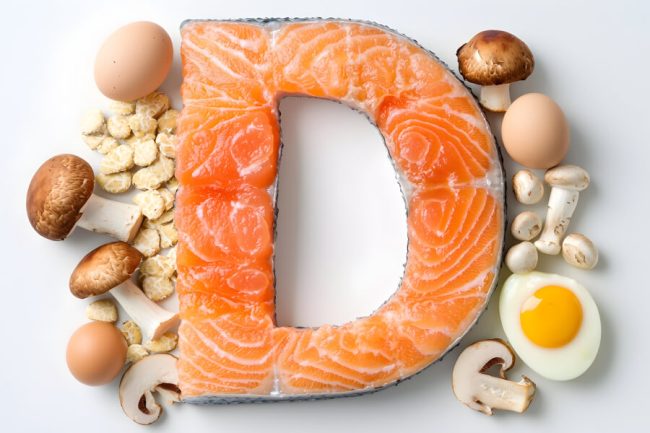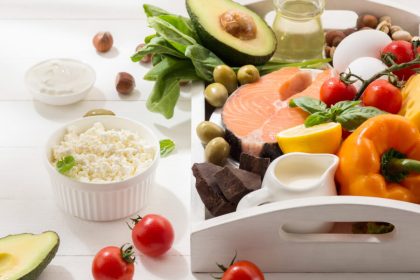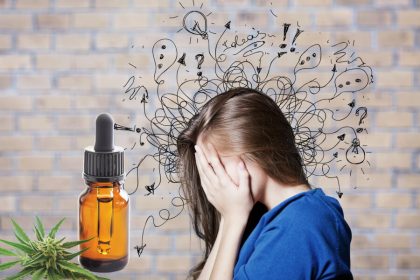Managing Attention Deficit Hyperactivity Disorder (ADHD) can be a challenging journey for many individuals and families. As awareness of ADHD increases, so does the interest in natural supplements to help reduce its symptoms. Here are some natural sources that can support individuals in managing ADHD symptoms effectively.
What is ADHD?
ADHD is a neurodevelopmental disorder that affects both children and adults. It is characterized by symptoms such as inattention, hyperactivity, and impulsivity. ADHD affects approximately 5% of children and can persist into adulthood in about 60% of cases. The condition can impact various aspects of life, including academic performance, work productivity, and relationships.
Common ADHD Symptoms
ADHD symptoms can vary widely among individuals, but common signs include:
- Difficulty focusing on tasks
- Forgetfulness and disorganization
- Impulsivity and impatience
- Hyperactive behavior (such as fidgeting or excessive talking)
These symptoms can lead to frustration and challenges in daily life, prompting many to seek alternative or complementary treatments.
Role of Omega-3 Fatty Acids in Managing ADHD Symptoms
Omega-3 fatty acids are essential fats that play an important role in brain health. Individuals with ADHD may have lower levels of omega-3s in their diets, leading to symptoms such as inattention and hyperactivity.
Best Sources of Omega-3 Fatty Acids
To boost omega-3 intake, consider adding the following foods to your diet:
- Fatty fish (such as salmon, sardines, and mackerel)
- Walnuts
- Flaxseeds and chia seeds
- Algal oil (a plant-based omega-3 supplement)
If you find it difficult to get enough omega-3s from your diet, high-quality fish oil or algal oil supplements can also be effective options.
Zinc and Its Impact on ADHD
Zinc is a vital mineral that plays a significant role in neurotransmitter function and brain development. Children with ADHD often have lower levels of zinc in their bodies. Zinc helps improve hyperactive and impulsive behaviors in children with ADHD.
Best Sources of Zinc
Here’s a simpler and more concise list of natural zinc sources that can help manage ADHD symptoms:
- Pumpkin Seeds
- Chickpeas in salads
- Lentils are full of zinc and fiber, perfect for soups
- Meat
- Shellfish
- Nuts
- Dairy products provide zinc and calcium
- Eggs are a good source of zinc and other nutrients
- Whole Grains like Quinoa and brown rice
Adding these foods to your diet can help support better zinc levels and may benefit ADHD management.
The Link Between Vitamin D and ADHD Symptoms
Vitamin D is known for its role in bone health, but it may also play a part in cognitive function and mood regulation. There is a potential link between vitamin D deficiency and increased ADHD symptoms. Ensuring sufficient vitamin D levels may help improve focus and cognitive function.
Best sources of Vitamin D
Here are some simple natural sources of vitamin D that can help with ADHD:
- Fatty Fish: Salmon, mackerel, and sardines are great choices.
- Egg Yolks: Eggs are a convenient source of vitamin D.
- Mushrooms: Especially those exposed to sunlight, like shiitake and maitake.
- Fortified Foods: Look for fortified milk, orange juice, and cereals.
- Cheese: Some types, like Swiss and cheddar, contain vitamin D.
- Beef Liver: A nutrient-dense option that provides vitamin D.
Spending time in sunlight also helps your body produce vitamin D naturally. Including these foods in your diet can support better vitamin D levels, which may benefit ADHD management.
Magnesium for Improved Focus
Magnesium is another essential mineral linked to brain health. Children with ADHD often have lower magnesium levels, which may contribute to symptoms such as inattention and hyperactivity. Magnesium helps improve attention and reduce hyperactivity in children with ADHD.
Best sources of Magnesium for ADHD
Here are some simple natural sources of magnesium that can help with ADHD:
- Leafy Greens: Spinach and kale are excellent choices.
- Nuts and Seeds: Almonds, cashews, and pumpkin seeds are rich in magnesium.
- Whole Grains: Brown rice, quinoa, and oats provide good amounts.
- Legumes: Beans and lentils are great sources of magnesium.
- Dark Chocolate: A tasty treat that contains magnesium.
- Avocados: These are not only healthy but also high in magnesium.
- Fish: Salmon and mackerel offer magnesium along with other nutrients.
Adding these foods to your diet can help boost magnesium levels, which may support ADHD management.
Essential Nutrients for Balancing ADHD Symptoms
Multivitamins can be a convenient way to ensure you’re getting essential nutrients that may support brain health. A balanced multivitamin can provide a range of vitamins and minerals that contribute to overall well-being, including B vitamins, iron, and vitamin C.
Choosing the Right Multivitamin for ADHD
When selecting a multivitamin, look for one that is specifically formulated for brain health or cognitive support. Ensure it contains adequate levels of vitamins and minerals that have been shown to benefit individuals with ADHD.
Herbal Remedies for ADHD Symptoms
Ginkgo biloba is an herbal remedy known for its potential cognitive benefits. Ginkgo may improve attention and memory in individuals with ADHD. It’s believed to improve blood flow to the brain and support overall cognitive function.
Other Herbal Options for ADHD Symptoms
Other herbal supplements to consider for ADHD symptoms include:
- Bacopa monnieri: Known for its potential to improve memory and cognitive function.
- Ashwagandha: An adaptogen that may help reduce stress and improve focus.
Before starting any herbal supplement, it’s essential to consult with a healthcare provider to ensure safety and effectiveness.
Combining Natural Remedies with Traditional Treatments
For many individuals with ADHD, traditional medication may be an essential part of their treatment plan. However, natural supplements can serve as complementary therapies.
Combining natural remedies with traditional treatments can improve overall effectiveness and improve quality of life.
Consulting a Healthcare Provider for Personalized ADHD Management
It’s important to work with a healthcare provider when considering natural supplements for ADHD. They can help develop a personalized management plan that includes both traditional and natural remedies.
Lifestyle Changes for Improved ADHD Symptoms
Exercise and Its Impact on ADHD Symptoms
Regular physical activity can significantly impact ADHD symptoms. Exercise has been shown to boost brain function, improve mood, and improve focus. Aim for at least 30 minutes of moderate exercise most days of the week to support overall health.
Healthy Dietary Choices for ADHD Symptoms
A balanced diet rich in whole foods, including fruits, vegetables, whole grains, lean proteins, and healthy fats, can positively influence ADHD symptoms. Avoiding processed foods, excessive sugar, and artificial additives can also be beneficial.
Sleep Patterns and Their Influence on ADHD Symptoms
Quality sleep is vital for managing ADHD symptoms. Establishing a consistent sleep routine and creating a calming bedtime environment can improve sleep quality and, in turn, help reduce ADHD symptoms.
Final Thoughts on Natural Remedies for ADHD
Adding natural supplements to your ADHD management plan can offer additional support alongside traditional treatments. However, it’s essential to remember that everyone’s experience with ADHD is unique. What works for one person may not work for another, so a personalized approach is crucial.
The Importance of a Comprehensive Approach to Managing ADHD
Combining natural remedies, traditional treatments, lifestyle changes, and ongoing support from healthcare providers can lead to a more effective management strategy for ADHD. This comprehensive approach not only addresses symptoms but also promotes overall well-being.
Conclusion
Natural supplements can play a valuable role in managing ADHD symptoms. From omega-3 fatty acids to herbal remedies, numerous options exist to help improve focus, reduce hyperactivity, and improve cognitive function. Always consult with a healthcare provider before starting any new supplement or treatment plan to ensure safety and effectiveness.
FAQs
What is the best natural supplement for ADHD?
There isn’t a one-size-fits-all answer, as the best natural supplement can vary from person to person. Omega-3 fatty acids, zinc, magnesium, and vitamin D are commonly recommended supplements that may help manage ADHD symptoms.
How can ADHD be treated naturally?
ADHD can be managed naturally through a combination of dietary changes, lifestyle modifications, and supplements such as omega-3s, zinc, and magnesium. Consulting a healthcare provider is essential for developing an effective plan.
What helps reduce ADHD symptoms?
Adding natural supplements, engaging in regular exercise, maintaining a balanced diet, and ensuring adequate sleep can help reduce ADHD symptoms.
What is the most powerful herb for ADHD?
Ginkgo biloba and bacopa monnieri are two herbal options that may offer cognitive benefits for individuals with ADHD. However, it’s essential to consult a healthcare provider before starting any herbal remedy.







